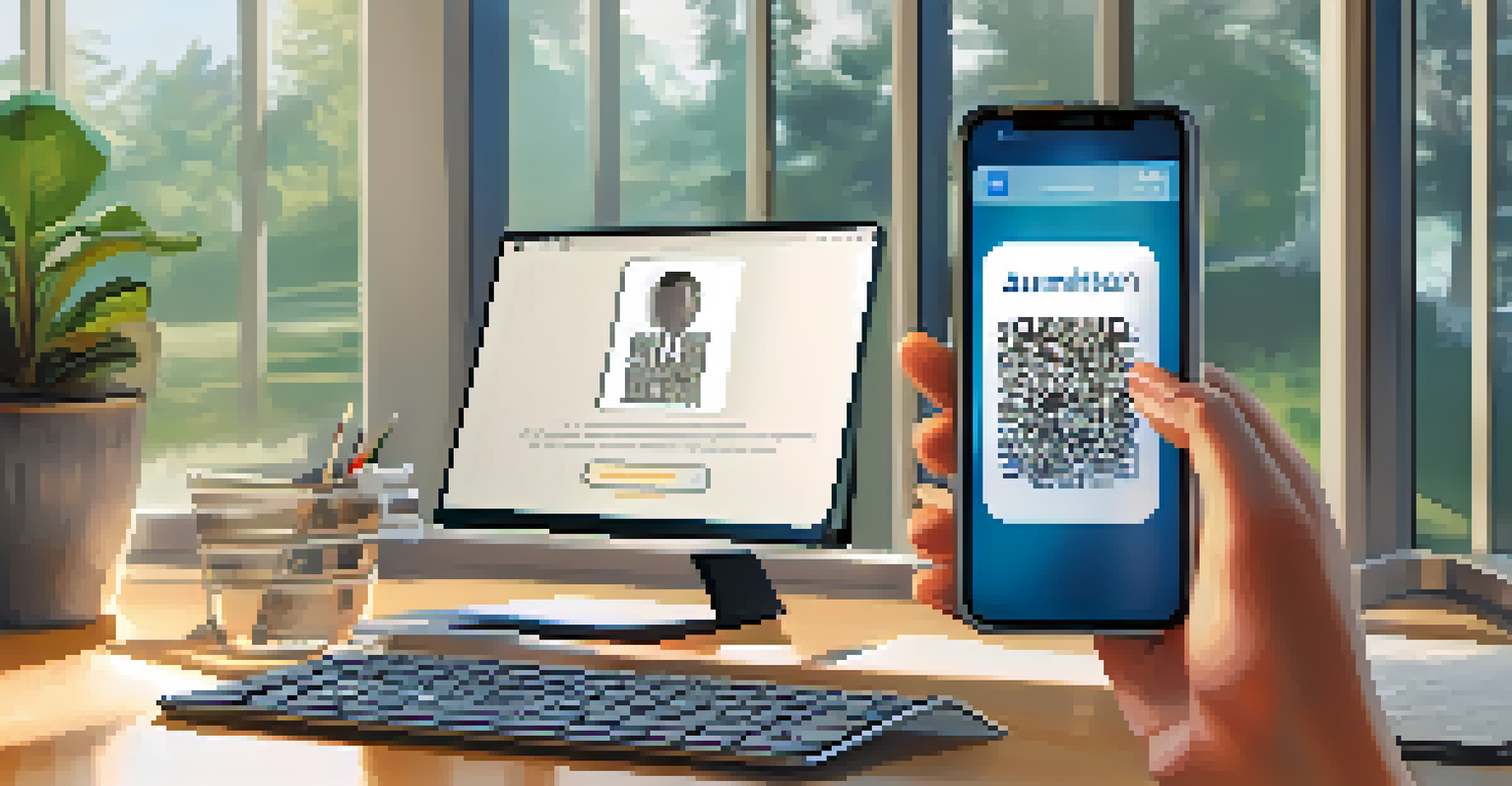Digital Self Defense: Protecting Yourself Online

Understanding Digital Self Defense and Its Importance
Digital self-defense refers to the strategies you use to protect your online identity and personal information. With the rise of cyber threats, understanding how to safeguard your digital life has never been more crucial. Just as you wouldn't leave your front door wide open, you shouldn't ignore the potential vulnerabilities that come with being online.
The best way to protect yourself is to understand the risks and take action to mitigate them.
In today’s interconnected world, our lives are increasingly lived online. From social media to online banking, we share vast amounts of personal data that can be exploited if not properly protected. This reality makes digital self-defense a necessary skill for everyone, regardless of their tech-savviness.
By adopting proactive measures, you can guard against identity theft, scams, and privacy invasions. Think of it as learning self-defense techniques, but for the virtual realm. The more you know, the better equipped you'll be to handle potential threats.
Creating Strong Passwords: Your First Line of Defense
Strong passwords are like the locks on your doors—they keep unwanted visitors out. A good password should be at least 12 characters long and include a mix of letters, numbers, and symbols. Instead of using easily guessed information like birthdays or pet names, opt for a random phrase or a combination of unrelated words.

Using a password manager can simplify this process. These tools generate and store complex passwords, ensuring you don’t have to remember them all. This way, you can focus on creating unique passwords for every account, which significantly reduces your risk of being hacked.
Protect Your Online Identity
Digital self-defense strategies are essential for safeguarding your personal information in an increasingly connected world.
It's also essential to change your passwords regularly and avoid reusing them across different accounts. Just like you wouldn’t use the same key for your home, car, and safe, each digital account deserves its own unique password to enhance security.
Two-Factor Authentication: Adding Extra Security
Two-factor authentication (2FA) is like an extra lock on your front door. Even if someone gets your password, they won't be able to access your account without a second form of verification. This could be a text message code, an email confirmation, or even a biometric scan like a fingerprint.
In a world where technology is constantly evolving, digital self-defense is essential for safeguarding our identities.
Many popular services, such as Google and Facebook, offer 2FA as an option. By enabling this feature, you create an additional layer of security that significantly reduces the chances of unauthorized access to your accounts. Think of it as a safety net that catches potential threats before they can do any harm.
While it may seem like an inconvenience at times, the benefits of 2FA far outweigh any minor hassle. The peace of mind you gain knowing your accounts are more secure is well worth the extra few seconds it takes to verify your identity.
Recognizing Phishing Attacks: Stay Alert
Phishing attacks are like baited traps designed to lure you into giving away sensitive information. These scams often come in the form of emails or messages that appear to be from legitimate sources, asking you to click on a link or provide personal details. Being able to recognize these attacks is critical to your digital self-defense.
Always scrutinize the sender's address and the content of the message. Look for signs of urgency or poor grammar, as these can be red flags. If something seems off, trust your instincts and avoid clicking on any links or downloading attachments.
Use Strong and Unique Passwords
Creating complex passwords and using a password manager is vital for enhancing the security of your online accounts.
When in doubt, go directly to the official website of the company or service in question rather than following a link. This simple habit can save you from falling victim to these deceptive tactics and help keep your information safe.
Maintaining Privacy on Social Media Platforms
Social media is a double-edged sword—while it connects us, it can also expose our personal information. To maintain your privacy, review your account settings and ensure that only the people you trust can see your posts and information. Adjusting these settings can help you control who accesses your data.
Be mindful of the information you share online. Avoid disclosing sensitive details such as your address, phone number, or even your daily routines. The less you share, the harder it is for someone to build a profile that could be used against you.
Additionally, think twice before accepting friend requests or connections from unknown individuals. Just like you wouldn’t invite a stranger into your home, be cautious about who you allow into your digital life.
Secure Your Devices: Protecting Your Digital Assets
Your devices—smartphones, tablets, and computers—are gateways to your personal information. Ensuring they are secure is a fundamental aspect of digital self-defense. Start by installing reputable antivirus software and keeping your operating system updated to protect against vulnerabilities.
Additionally, use encryption tools whenever possible. Encryption scrambles your data, making it unreadable to anyone who doesn’t have the key, thus offering an extra layer of security. It’s like locking your valuables in a safe; even if someone breaks in, they can’t access what’s inside.
Be Aware of Phishing Attacks
Recognizing phishing scams and being cautious with your information can prevent unauthorized access to your personal data.
Always remember to lock your devices when not in use, especially in public spaces. A moment of inattention can lead to significant security risks, so develop the habit of securing your devices as soon as you step away.
Understanding Data Privacy Laws: Empower Yourself
Data privacy laws are designed to protect your personal information and regulate how companies collect, use, and store it. Familiarizing yourself with these laws can empower you to make informed decisions about your data. For example, the General Data Protection Regulation (GDPR) in the EU gives individuals greater control over their personal information.
Knowing your rights can help you navigate the digital landscape more confidently. You have the right to request access to your data, ask for corrections, and even request deletion in many jurisdictions. Understanding these rights is crucial in holding companies accountable for how they handle your information.

Stay informed about changes in data privacy regulations, as these laws can evolve. By actively engaging with these developments, you can better protect yourself and make choices that align with your values.